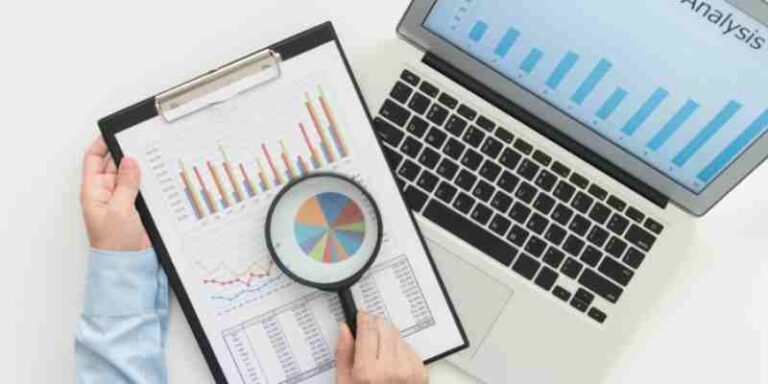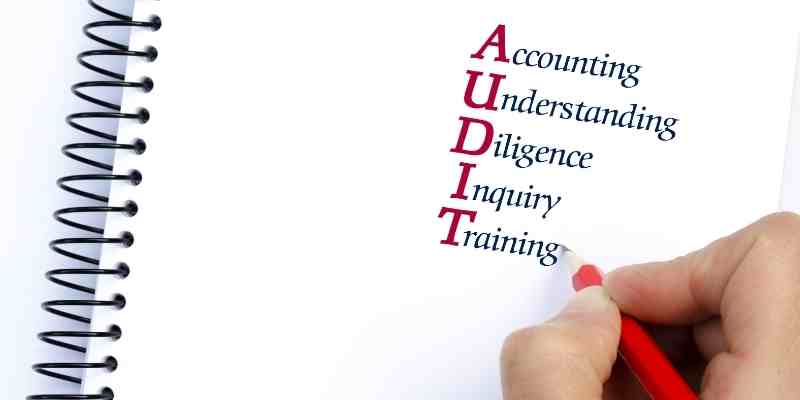- Home
- What are we
- Who we help
-
- How we help
-
-
-
- Accounting
-
- Advisory
-
- Business Support
-
-
- Resources

The definition of an accountant is someone who "keeps, inspects, and analyses financial records". In reality, however, the job of an accountant is incredibly varied and there is a huge range of accountant positions that have quite different responsibilities to each other.
Table of Contents
To become an accountant, the person must have an accredited accounting qualification. How this qualification is obtained depends on the route taken to becoming an accountant. There are different qualifications from different accrediting bodies that can be more useful for different accounting careers.
Many people choose to take the academic route into accountancy. This involves having A levels and a bachelor's degree before going on to take postgraduate professional accountancy qualifications. The degree doesn't usually have to be in accountancy.
It used to be that the "Big Four" accountancy companies (PWC, Deloitte, EY, and KPMG) had quite strict requirements, including a minimum 2:1 bachelor's degree, but these have become more relaxed of late as the companies are broadening their recruitment pools. A 2:2 degree isn't necessarily a barrier to entry any longer.
The vocational route is relatively similar to the academic route, with a bachelor's degree and postgraduate professional qualifications. But instead of A levels, a BTEC Level 3 vocational qualification is completed.
This route is quite different from the academic and vocational routes. Rather than gaining qualifications first, the work-based route involves having a training contract and gaining an accountancy qualification "on the job".
This can take two forms: a formal apprenticeship that leads to professional accountancy qualifications and a junior role in a firm with qualifications earned alongside the job as part of a training contract.

AAT qualifications are a useful stepping stone for getting into accountancy without the need for a degree, and they are a popular choice for people who are going down the work-based route.
There are three levels to AAT qualifications:
Completing these qualifications alone will be enough to qualify for many accounting jobs, including Accounts Assistant, Payroll Supervisor, and Assistant Accountant.
They also allow for entry into a chartered accountancy qualification programme, which grants entry into higher-level accounting jobs such as Public Finance Accountant, Management Accountant, and Public Practice Accountant.
A chartered accountant is an accountant who has gained an internationally recognised qualification demonstrating their knowledge and proficiency in accountancy. Chartered accountants work in a wide range of fields and are accounting professionals that are given responsibility and autonomy over managing the required accounting processes, and often managing staff as well. Continuing professional development is also expected of chartered accountants.
Many chartered accountant qualifications will require both work experience in accounting as well as some previous qualifications (which can include the AAT).
This is an internationally recognised chartered accounting qualification that is studied at a master's degree level. After completion, students will become ACCA members.
It usually takes around three years to complete the ACCA qualification, but this can be accelerated if the student holds certain accounting qualifications. For example, completion of the AAT Professional Diploma allows students to skip the first three of the nine exams required.
Three years of practical work experience in a relevant role are also required.
The ICAEW is a well-respected network of chartered accountants. To qualify, students must complete the ACA qualification. This is a three-year course that encompasses both practical and study work.
The ACA requires 450 hours of work experience in a relevant role. It is in three levels:
Qualification as a chartered accountant is only possible upon completion of the Advanced level. There are a variety of routes to completing the ACA, including ICAEW apprenticeships, a bachelor's degree, and a master's degree. Previous qualifications in accountancy can count towards the ACA, which can mean that exemptions can be granted for some modules and the process can be fast-tracked.
This qualification is specifically designed for people who are looking to become management accountants within business and industry. It provides a mix of business and finance knowledge and skills.
The first level of certification is the CIMA Certificate in Business Accounting, which is for people without any previous accounting qualifications. Once this is complete, or for people who do have some previous accounting qualifications, the next step is the CIMA Professional Qualification. This grants chartered accountant status (CGMA).

Accountants can work in such a wide variety of sectors and in so many different roles that there is no single accountant job description. Not all accountants are employed directly in an accountancy firm. Accounting professionals really are the financial backbone of businesses, both big and small, as well as many government agencies and multinational corporations.
The accountancy job role can vary wildly depending on where the accountant is employed, but accounting job duties can include:
As accountants are able to work their way up within a company, they can gain job titles such as senior manager which involves managing an accountancy team or they could even jump into a non-accounting role such as finance director.
The goal of management accounting is to use financial information to inform a company about its internal performance. A certified management accountant will prepare reports and collate and analyse financial data to help company management make both long and short term business decisions that are properly informed.
Financial accountants differ from management accountancy because they prepare and collate financial documents to present to people outside of the company, such as shareholders. A financial accountant will prepare financial statements, including income statements, balance sheets, cash flow, and retained earnings.
A certified public accountant is someone who works within an accountancy firm to provide accounting and businesses services to clients. This can include preparing a company's accounts, preparing tax documents, giving business advice, and conducting audits.
Public finance accountants work with public sector organisations, such as the NHS, local councils, schools, and government departments. Financial activities in the public sector need to be transparent and done correctly and efficiently. Public finance accountants create financial statements to report this information to the public.
Tac accounting is a specific area of accounting that deals with tax for individuals and small businesses, or they can work within a larger accountancy firm providing the same services. In the latter context, a tax accountant is often a more junior role. Tax accountants can provide financial advice and help to prepare tax returns to be completed, being especially busy during tax season.
A corporate accountant is someone who works within corporate finance, working with businesses to ensure that their financial information is in line with the rules and regulations. They can help to prepare monthly budgets, analyse cash flow, and annual audits, as well as managing cash flow and financial transactions.
A property account specialises in financial data related to the sale and management of property. This includes sales, rentals, purchases, and management of industrial/commercial as well as private properties. Property accountants prepare the financial records related to property, manage deposits, maintain records of property assets, and handle taxes.
There are both internal and external auditors. An internal auditor will work within a company or organisation to examine financial records and ensure that the internal controls of the organisation are accurate. Internal audits are an integral part of ensuring that a company's financial management is being properly maintained.
An external auditor is brought in from outside the company and their job is to inspect the accounting practices and books of the company to ensure that they are in line with International Auditing Standards. External auditors will often generate a report that can be presented to stakeholders.
A forensic accountant works within a specialist field of accounting. Often working alongside a certified fraud examiner, their job is to examine financial transactions and records, assets, and other information to identify whether a company or individual has been engaging in financial crimes, including fraud, embezzlement, and money laundering. Forensic accounting uses a variety of investigative techniques to verify whether companies' financial management, financial operations, and financial reporting are accurate.
Some financial analysts have been trained specifically in that area, but it is also a popular career path for certified public accountants. The job of a financial analyst is to examine financial reports and data and use that analysis to make forecasts and predictions that they can then use to make financial recommendations.
Some accountants work for themselves, generating their own client base for whom they provide accountancy services. This often includes preparing and filing tax returns, but can also include business advice. This advice can include advice about cash flow, how to manage debt effectively, budget creation and management, stock management, and even dealing with invoices including unpaid invoices.
This is the highest job role that an accountant can reach within a business and they are responsible for managing the finances of an organisation. They analyse risk and use and capital-raising frameworks to help with business expansion, product development, and other growth endeavours. They are also responsible for ensuring that revenue streams are stable and are involved in business strategy.

The accounting industry has a wide variety of careers and accountant job roles, but the career outlook as a whole is generally one that is stable and secure regardless of the exact area that accountants work within. Job growth and the career outlook is usually high and there are lots of related careers that can be springboarded into with an accountancy qualification and experience.
There are approximately 600,000 people employed in an accountancy role in the UK, with the majority of these working as in-house accountants within companies, and a smaller percentage working at dedicated accountancy firms.
For people who gained their chartered status via ICAEW, 3/4 end up working at an accountancy firm. In contrast, virtually no accountants who completed CIMA work at accountancy firms. Instead, they tend to work within other companies.
According to gov.uk, 54% of chartered accountants are male and 88% of chartered accounts work in private industry (not public). 81% of accountants are employees and 17% are self-employed. 57% of accountants hold a bachelor's degree.
People working within financial services predict that accountants will have the highest job satisfaction, and 82% of chartered accountants say they find enjoyment in their job. this is often ascribed to the clear pay and career progression as well as the ease of working while training and the ability to work independently.
One of the benefits of pursuing accountancy as a career is that there are paid opportunities to work across all levels of training and this work is, in fact, a requirement of gaining chartered status.
The average starting accountant salary for a trainee accountant on a graduate scheme is £30,000. This jumps to £48,000 for newly qualified accountants who have completed their training. The average global salary for chartered accountants is £130,000. For people going down the work-based route, rather than going into accountancy as a graduate, the starting salary in a junior role is around £24,000.
With many accountancy job roles, movement up the career ladder takes a predictable route with more responsibility/more senior positions and higher pay being offered at clear intervals along the path. This entirely depends on the area in which the job is placed, however. Self-employed accountants or resident accountants at small firms may not have as clear a career progression.
Accountancy is, of course, heavily based on maths so good maths skills are important, but it isn't always the most important skill that accountants will rely on. Being comfortable with numbers, percentages, fractions, decimals, order of operations, and intervals are important, as well as some basic algebra, but the study of maths to a higher level often isn't required.
IT is an increasingly important element of accountancy jobs, with a lot of accountancy work being conducted using dedicated accounting software and/or Excel. Some basic coding skills that can automate some of the functions that will be used for calculations can be helpful.
Beyond the core skills related to the bones of accountancy work, accountants will also need skills related to their place in their job role and their method of working. Interpersonal skills and communication skills are extremely helpful when it comes to working within teams and departments, and in terms of being able to present ideas and data clearly and understandably.
A high level of integrity is vital for accountants who will be dealing with business transactions and other accounting job duties, as is being able to take a methodological and clear approach to their work process.
A lot of accountancy jobs require problem-solving and analytical skills and being able to interpret data in a meaningful and insightful way. This isn't always directly related to maths skills and it requires logic and insight.
Accountants often work to tight and unmovable deadlines, so the ability to manage time effectively is very important, as is self-motivation.
Depending on the accountant job role, an in-depth understanding of business can be extremely useful, as many accountancy roles branch out from dealing strictly with accounts to providing business advice such as risk analysis and forecasting of future trends.
Accountants perform vital accounting functions within businesses, working with clients as part of an accountancy firm, working within the public sector, or as self-employed accountants. The average annual salary is £30,000 which is above the UK average and there is a large amount of room for career progression and movement. There are varied routes to entry into accountancy, which can range from post-graduate training after a bachelor's degree, to apprenticeships and work-based routes.